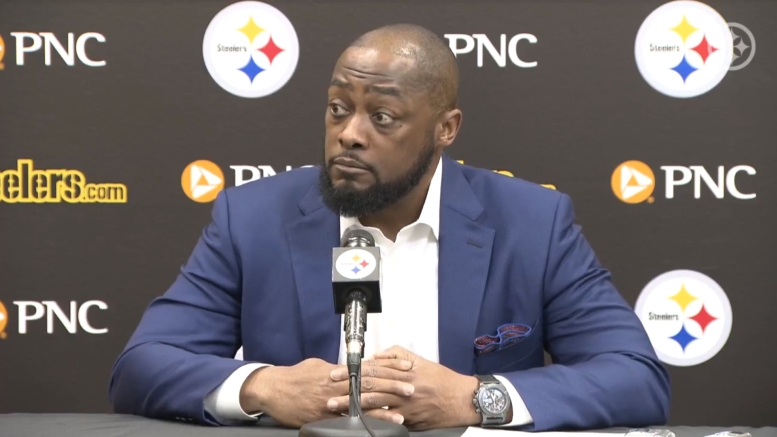It was Mike Florio of Pro Football Talk who about a year and a half ago reported that some members of the Pittsburgh Steelers’ ownership group were unhappy with Head Coach Mike Tomlin, and following a frustrating playoff exit amid a season of controversy, wanted to see him fired after 11 seasons.
It’s safe to say that Tomlin was not, in fact, fired following the 2017 season, and even after a 9-6-1 record that was not good enough for Pittsburgh to return to the postseason in 2018, the team elected to give him a contract extension of one year, with an additional team option that ties him to the team through the 2022 season.
Now it’s Ed Bouchette who is reporting that some of the team’s minority owners were against the team’s decision to sign Tomlin to that extension. Not that it matters, of course. The minority owners hold no meaningful power, and Art Rooney II is certainly not going to fire a coach because somebody who owns a five-percent share of the team thinks he should.
Bouchette, in fact, said that himself in 2018, as Florio quotes in an article that he wrote yesterday relaying the former’s new report through The Athletic, a subscription site to which I am not a subscriber. It was also Bouchette in this report who confirmed that the option is a club option, not the coach’s option, though that was largely assumed.
I’m not quite sure who it might be within the ownership group who opposed the extension, but you can probably safely rule out the more prominent members, such as Thomas Tull, who have been vocal and even outspoken regarding their belief in Tomlin’s leadership.
To put this in perspective, the team has more than a dozen members of its ownership network. Bouchette reports that “some Steelers minority owners did not want team president Art Rooney II to extend Tomlin at all”. That could literally mean that two people didn’t want it to happen, for all that we know.
Do you think every organization that has a large ownership group makes all of its decisions by unanimous vote? Of course not. There are certain owners who essentially run things within that group, with the others largely in a profiting position, though they can certainly offer their input, in theory. Whether or not it will be listened to, let alone heeded, is another matter.
The last time that a Steelers head coach entered a season with fewer than two years remaining on his contract was nearly the 2007 season until Bill Cowher chose to retire. He was under contract through 2007, but the team did not give him an extension in the summer of 2006, when they ordinarily would, even though he was coming off a Super Bowl victory.








